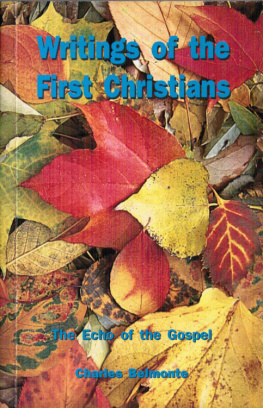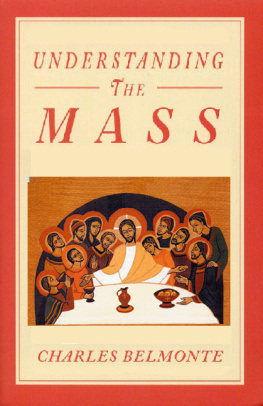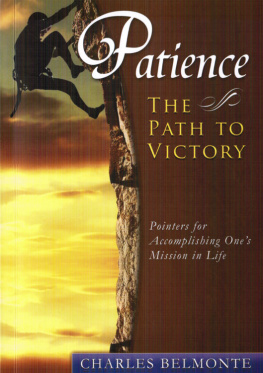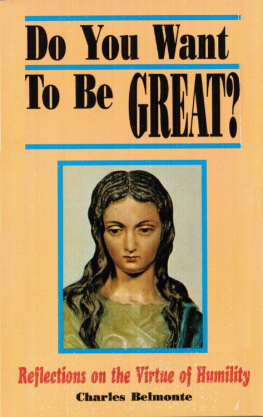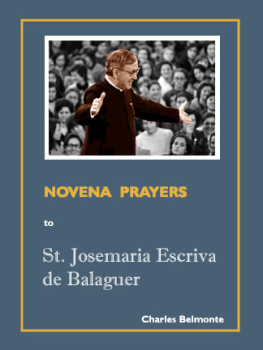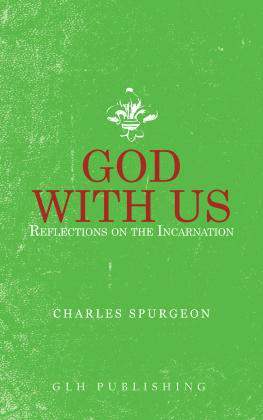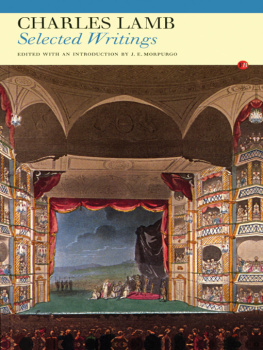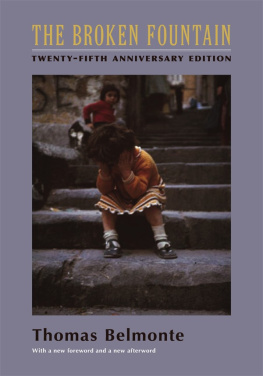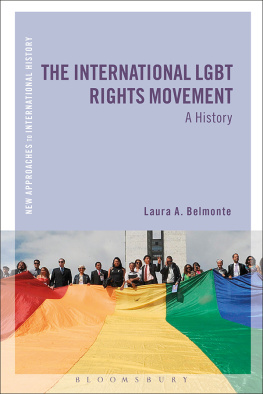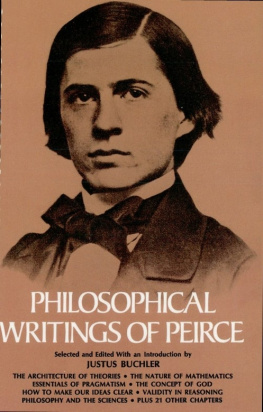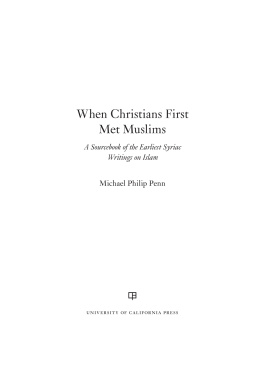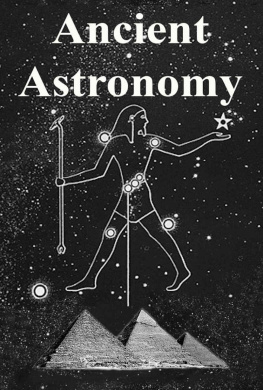Charles Belmonte - Writings of the First Christians
Here you can read online Charles Belmonte - Writings of the First Christians full text of the book (entire story) in english for free. Download pdf and epub, get meaning, cover and reviews about this ebook. year: 0, genre: Religion. Description of the work, (preface) as well as reviews are available. Best literature library LitArk.com created for fans of good reading and offers a wide selection of genres:
Romance novel
Science fiction
Adventure
Detective
Science
History
Home and family
Prose
Art
Politics
Computer
Non-fiction
Religion
Business
Children
Humor
Choose a favorite category and find really read worthwhile books. Enjoy immersion in the world of imagination, feel the emotions of the characters or learn something new for yourself, make an fascinating discovery.
- Book:Writings of the First Christians
- Author:
- Genre:
- Year:0
- Rating:4 / 5
- Favourites:Add to favourites
- Your mark:
- 80
- 1
- 2
- 3
- 4
- 5
Writings of the First Christians: summary, description and annotation
We offer to read an annotation, description, summary or preface (depends on what the author of the book "Writings of the First Christians" wrote himself). If you haven't found the necessary information about the book — write in the comments, we will try to find it.
Writings of the First Christians — read online for free the complete book (whole text) full work
Below is the text of the book, divided by pages. System saving the place of the last page read, allows you to conveniently read the book "Writings of the First Christians" online for free, without having to search again every time where you left off. Put a bookmark, and you can go to the page where you finished reading at any time.
Font size:
Interval:
Bookmark:
Copyright 1996 byCharles Belmonte
ISBM
NIHIL OBSTAT: Msgr. Josefino S. Ramirez
Vicar general & Chancellor
IMPRIMATUR: + JaimeL. Cardinal Sin
Archbishop of Manila
The Nihil Obstat and Imprimatur are a declaration that a book is considered free fromerror in matters of faith and morals and therefore fit for publication. It isnot implied that those who have granted the NihilObstat and Imprimatur agree withthe contents, opinions, or statements expressed.
Contents
Part I. INTRODUCTION
Part II. THEAPOSTOLIC FATHERS
Part III. THE AGEOF PERSECUTIONS
Preface
How was the preaching of the Gospelfirst received? What was the "impact" of the Good News on the listeners'lives? How were the early Christians' lives transformed by the demands offollowing Jesus? To know the answer to these questions, we must read the textsof the early Fathers of the Church, who received the Christ's teachingsdirectly from the apostles.
The apostles transmitted the word ofGod to a first generation of Christians, who were simple people with someformation in Greek and Jewish culture. Few of these were specialists inphilosophical questions. Thus, the extant writings produced by this firstgeneration of Christians called the Apostolic Fathers, for having being taughtby the apostles are mostly pastoral in character, paternal exhortationswritten in koin , the popularGreek language. We hear in these texts the echo of Christ's message ofsalvation, and of the preaching of the apostles.
Thewritings of the early Fathers of the Church can help us understand better therevealed truths. Somehow, these writings are like a continuation of the NewTestament; they are, in fact, the first links in the chain of Tradition. Theymay have been written many centuries ago, but they have not lost theirfreshness and vigor: They can still inspire us in our dialogue with God, stirus out of our self-complacency or lukewarmness, and encourage us to aspire fornew goals of sanctity and apostolate.
The so-called Reformers cut offSacred Scriptures from the living Tradition of the Church. On the other hand,the rationalists treated Sacred Scriptures as purely human documents, andinterpreted them by using scientific and historical norms alone. The Churchprotested against these errors and encouraged us instead to go to the witnessesof Tradition in order to clarify the meaning of Scriptural passages. The FirstVatican Council, for instance, warned against interpreting Sacred Scripturescontrary to the unanimous agreement of the Fathers (Sess. 3, c. 2). The SecondVatican Council has also reminded us of the supreme importance of the study ofthe Fathers of the Church ( Optatam Totius , n. 16).
There are excellent criticalcollections of the Early Fathers' works. Unfortunately, it is not so easy tohave one of such collections at home for use as spiritual reading or asinspirational source book. This volume is an attempt to offer these texts to awider circle of Christians who want to familiarize themselves with the thoughtsof our ancestors in the faithto go to the roots, as it were, so as tounderstand what the primitive Church believed and prayed.
With this purpose in mind, theauthor has sought to clear the texts (as translated from the originals) ofcomplicated words and expressions. Whenever possible, archaic terms have beensubstituted with their modern equivalents.
To easethe burden for those who may have little knowledge of Patrology, a selection hasbeen made of the most relevant passages of each work, but seeking all the whileto present a complete picture of it. The paragraphs or chapters omitted havenot been indicated in the text. Their chapter numbers identifies all passages.
May the joyful light of Christ'struth, present in these writings, transform the reader's life as was theexperience of the early Christians: Each tried to make his life consistentcoherent with his faith.
PART I
INTRODUCTION
Gods Revelation: Sacred Scriptures and Tradition
At varioustimes in the past and in various different ways, God spoke to our ancestorsthrough the prophets; but in our own time, the last days, he has spoken to usthrough his Son (Heb 1:1-2). God chose to reveal to us the mysteries ofsalvation. He did so by speaking through a long line of heralds of hiswordbeginning with the prophets of old and ending with his very Son, Jesus theLord, in whom the fullness of Revelation is brought to completion.
God,however, did not want this message of liberation to be known by only a few. Hesaw to it that what he had revealed would remain forever whole and entire, andbe passed on to all generations. To assure this stability, Jesus Christ foundedhis Church. Built upon the Rock the apostle Peter (Mt 16:18) the Church wasto be in essence universal (in Greek,catholic).
Christ commissionedthe apostles to preach to all men his Gospel, which is the source of all thetruths necessary for salvation and moral teaching. He also ordered them toadminister the heavenly gifts, the sacraments.
Thiscommission was faithfully fulfilled by the apostles. By their oral preaching,and by their example, the apostles handed on what they had received from thelips of Christ himself, reinforced by the ineffable experience of having livedclose to him and seeing what he did. They also incorporated in their teachingwhat they had learned through the prompting of the Holy Spirit.
Thecommission was fulfilled, too, by those apostles and apostolic men who, underthe inspiration of the Holy Spirit, put the message of salvation in writing.
Theapostles knew very well that the Gospel had to be kept forever whole and alivewithin the Church. Thus, they appointed bishops as their successors, givingthem the authority to teach in their own place. The apostles warned theChristians to hold fast to the traditions that they had learned either by wordof mouth or by letter; these we call the Churchs Tradition.
Traditionmeans handing onthe apostles handed on what they themselves had receivedfrom Christ. Before a line of the New Testament was written, it was the Churchthat preached Christ to the new converts. And it was on the apostles testimonythat the first converts believed in Christ.
Traditionalso means that which is handed onthe content of the teachings that theapostles received from Christ. This Tradition includes everything thatcontributes to holiness of life and to the increase in faith in the people ofGod. Thus, with her teaching, life, and worship, the Church perpetuates andhands on to all generations all that she is, and all thatThis Tradition developed in the Church with the help of the Holy Spirit.
The Biblementions two kinds of religious traditions: divine and human.
God wanted divine Tradition preserved and honoredbecause he made it part of the deposit of faith. As St Paul affirmed: Standfast and uphold the traditions just as I have handed them on to you (1 Cor11:2; see also 2 Thess 2:15 and 3:6). Against this, the Protestants claim thatall Tradition is man-made, not coming from God, made by those who havethe power to teach in the Church.
The Fathersof the Church received this divine Tradition from the apostles, theirancestors, and faithfully transmitted it.
On theother hand, Christ accused the Pharisees of being too concerned about the traditions of men, which had theirorigin in the opinions of earlier teachers, while neglecting the divinetraditions of Gods Law: You put aside the commands of God to cling to thetraditions of men (Mk 7:8).
With theseman-made traditions, the Jews were forever adding little precepts andinterpretations to the Law of God; instead of helping its fulfillment, thesehuman traditions suffocated and contradicted it.
Font size:
Interval:
Bookmark:
Similar books «Writings of the First Christians»
Look at similar books to Writings of the First Christians. We have selected literature similar in name and meaning in the hope of providing readers with more options to find new, interesting, not yet read works.
Discussion, reviews of the book Writings of the First Christians and just readers' own opinions. Leave your comments, write what you think about the work, its meaning or the main characters. Specify what exactly you liked and what you didn't like, and why you think so.

